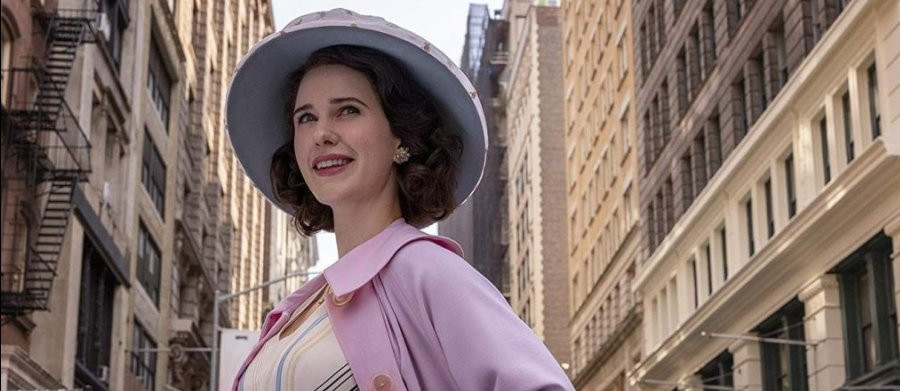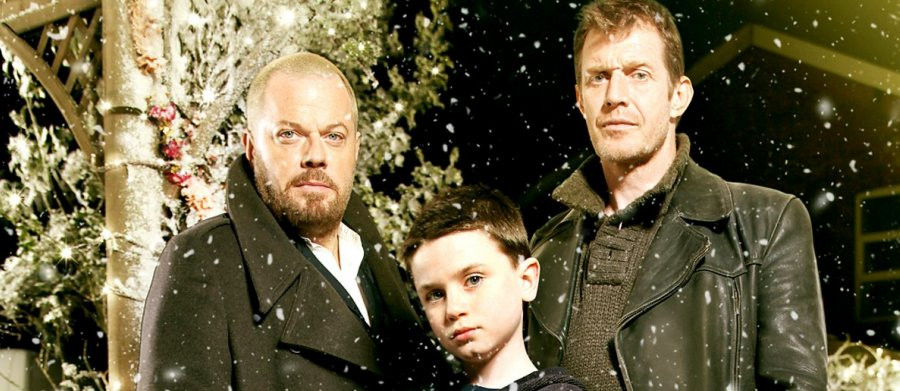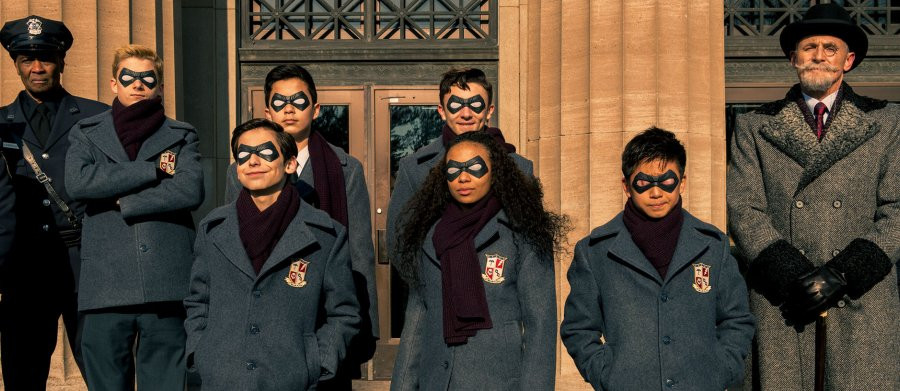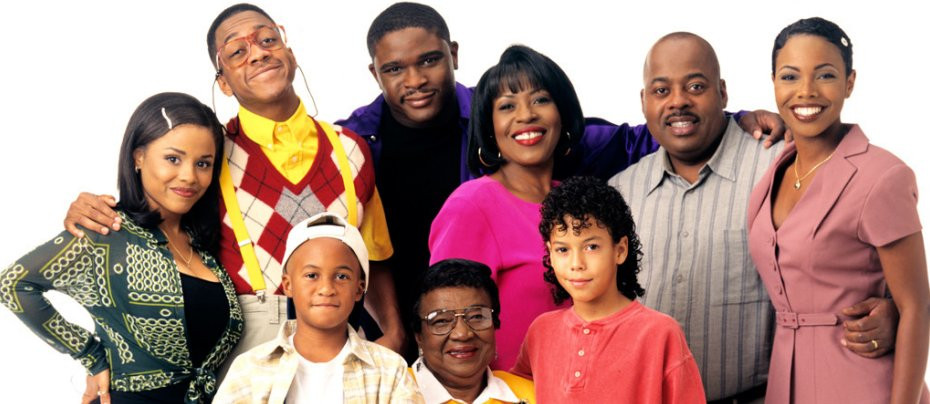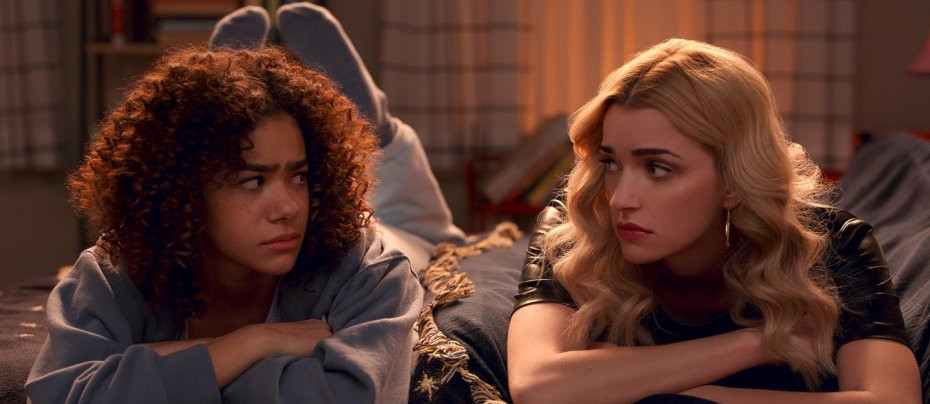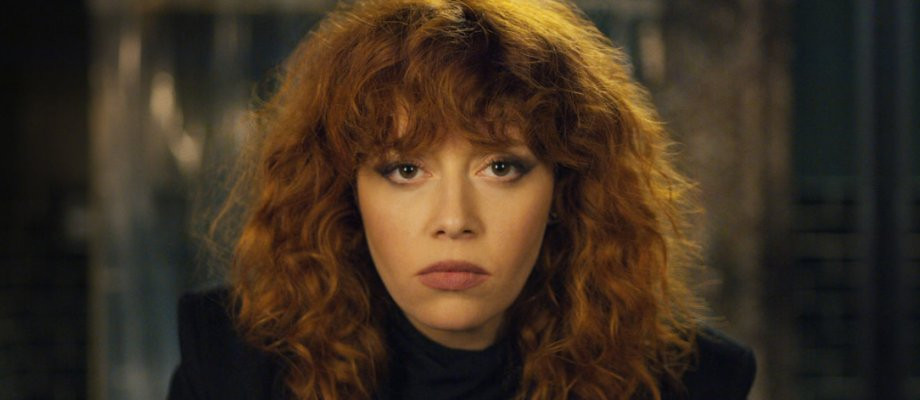
Russian Doll
2019 - United StatesA Netflix show, Russian Doll is a comedy-drama aired in February 2019 which follows the lives and deaths (yes, multiple) of its central protagonist Nadia (Natasha Lyonne). The main crux of the series revolves around Nadia repeatedly dying and waking up in the same apartment over and over again, seemingly destined to relive the same night until she figures about how to alter her defective life path. It is co-written by Lyonne, Amy Poehler and Leslye Headland, while all three co-creators serve as executive producers as well.
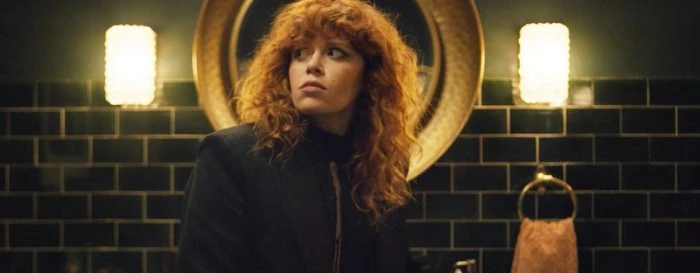
Opening with Nadia staring at a reflection of herself in the mirror of her friend’s bathroom at a party held in honour of her 36thbirthday, Nadia then proceeds to undergo a series of unfortunate accidents that invariably end in her untimely death. Not to worry, however, because she always respawns in front of the same mirror at the same party with the same song (Harry Nilsson’s Gotta Get Up) playing in the background, only for death to assault her in some unforeseen way before too long. Desperate for a way out of this interminable nightmare, Nadia looks for clues in the behaviour of her friends, the building’s religious associations and – crucially – the murkiness of her own traumatic history.
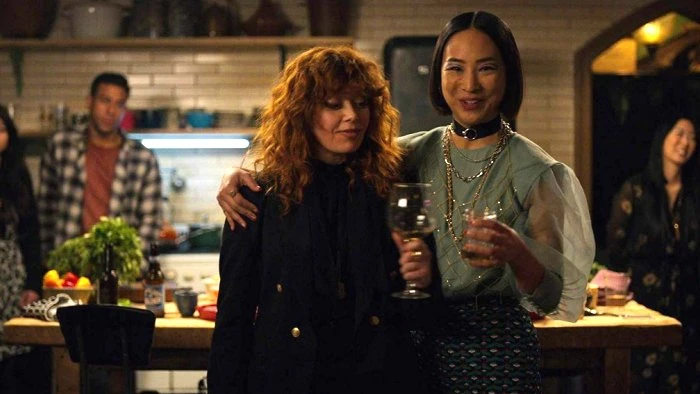
It’s right around this time that Nadia stumbles into Alan (Charlie Barnett), an uptight and insecure man who is suffering a similar fate as our flame-haired heroine. Upon further delving into Alan’s situation, we discover he has been suffering relationship problems with his long-term girlfriend Beatrice (Dascha Polanco); it’s a malaise he tries to paper over by proposing to her, but which is worsened in the attempt and ultimately hastens their break-up. It further transpires that Beatrice has been having affair with her sleazy college professor for some time, who, coincidentally, is also present at Nadia’s birthday party. The plot thickens.
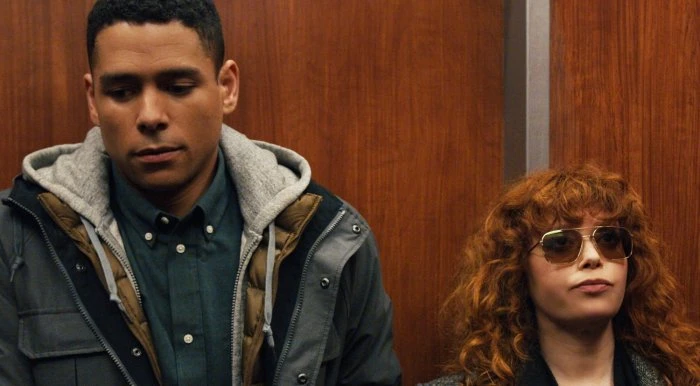
Having once found each other, Nadia and Alan recognise they must work together to unravel the tightly wound ball of confusion that their lives have become; the only trouble is that they keep dying prematurely before they can make too much headway. In this infuriating game of trial and error, in which trial represents feeling in the dark and error represents perishing in it, the pair struggle to patch up each other’s problems and find a mutual solution to their dilemma.
The resemblance to Harold Ramis’ 1993 film Groundhog Day is more than just a passing one. As well as imitating Bill Murray’s own purgatorial cycle of death and rebirth, Lyonne also channels a similarly raw and powerful charisma, propped up with substance abuse, laced with ice-cool humour and tempered with a dollop of egocentricity. It’s an incredible performance and one which acts as the lynchpin of the show. Both works also make excellent use of the role that songs play in memory, with the Nilsson number punctuating Nadia’s life cycles in a similar manner that Sonny and Cher’s I Got You Babe did for Groundhog Day. It’s probably here that the comparisons stop short, however.
Whereas Groundhog Dayseemed to be a relatively straightforward parable about the pitfalls of the ego and learning to put others before yourself, Russian Doll is a far more difficult nut to crack. Of course, Nadia and Alan’s symbiotic relationship does allow for a similar reading, but there is so much going on in the background that it’s hard to know where to begin with unboxing the various babushkas of meaning that are contained within this complex and multifaceted show.
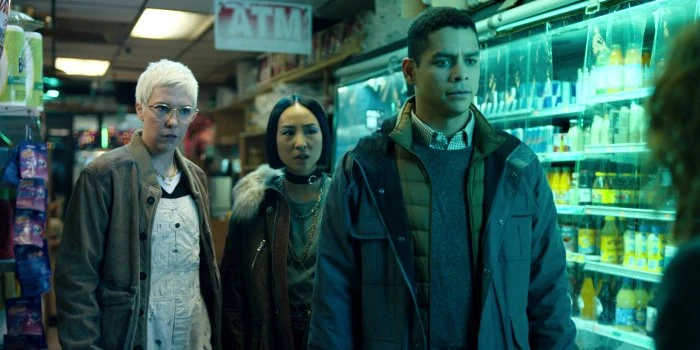
Perhaps the most obvious interpretation of Nadia and Alan’s struggles is that the show stands as a metaphor for therapy and self-healing. Both characters are deeply conflicted, Nadia by a sense of guilt regarding her mother’s premature death and Alan due to his failing relationship, which results in each of them becoming unhappy both inside and outside themselves. The fact that both respawn in front of mirrors, alongside the presence of an actual therapist in the series itself, further lends weight to this theory, while their roles in helping each other to progress and develop make it a neat and tidy explanation which can offer one of multiple interpretations.
Another is that it’s a foil for substance abuse; Lyonne herself famously struggled with a drug habit that threatened to end not only her fledgling career but also her life. The repetitive sequence into which she and Alan are both locked is reminiscent of the monotonous and cyclical behaviour of addicts, while Nadia is initially convinced that narcotics are indeed the cause of her malaise at the show’s outset. The fact that addiction and therapy often go hand-in-hand also allows this theory to dovetail nicely with the previous interpretation, as well.
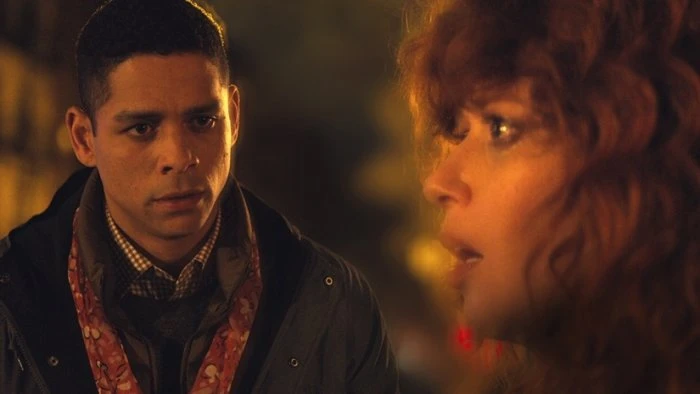
As if that wasn’t enough, there are myriad other readings to be had. From religious purgatory to computer game simulations to a bizarre but surprisingly plausible take on the show’s connection to the Tompkins Square Park Riots of 1988, the internet abounds with thoughts and theories on what exactly Russian Doll is supposed to signify. Any show which stimulates that amount of chatter is surely doing something right.
But metaphysical and philosophical musings aside, even those who don’t read deeper meanings into Russian Doll will not go away disappointed. Lyonne’s performance alone is magnetic enough to keep you enthralled, while the stylishness of the cinematography, the snappiness of the dialogue and the sheer unpredictability of the storyline is sure to keep viewers hooked until its strange but satisfying denouement. Equal parts comedy, existential enigma and uplifting balm for the soul, Russian Doll ticks all the boxes you’d want it to.
Seen this show? How do you rate it?
Seen this show? How do you rate it?
Published on April 29th, 2019. Written by Jonathan Sweet (2019) for Television Heaven.




